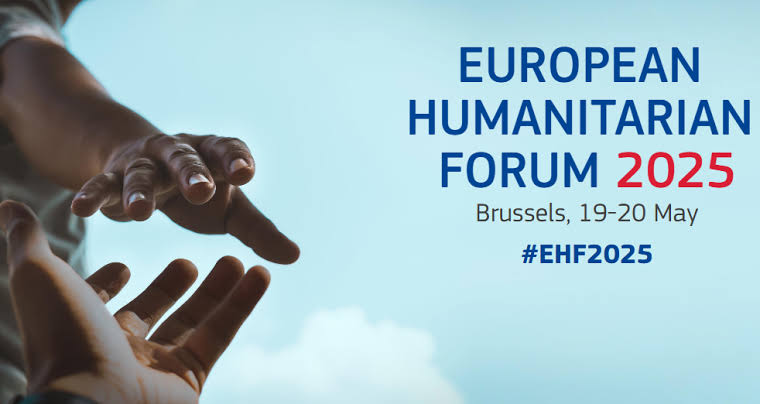Rezaul Karim Chowdhury & Md Iqbal Uddin
Published:2025-05-15 21:31:47 BdST
On the eve of European Humanitarian Forum 2025Connecting localization mobilization in the greater civil society movement
The Disconnect
There is promising activism observed in aid recipient countries where the localization movement is being aroused organically. Local and national NGOs are organizing themselves, sometimes it is being sparked out of different project activities by international agencies.
Most of the time, this mobilization is being observed as mere localization in view of the Grand Bargain commitment. In some cases, when that project ended up, as because of its limited objectives and being prompted by an international agency, the mobilization is also closed. As a result, many such efforts remain confined to the narrow scope of the localization commitments and fail to evolve into sustainable or independent movements.
Why the Connection Matters?
Sustainability, accountability, and broader participation are vital to any meaningful localization effort. So, the localization mobilization must be linked to a greater civil society movement of the locality or of the country.
Given our country’s experiences, we mean that the civil society movement should stand for universal human rights, democracy and justice. Maybe in some countries, based on the country’s situation, it has to be nonpartisan, but it does not mean the movement is nonpolitical, and civil society must remain actively engaged in shaping it in their national discourse.
Network for Leadership: Is It a Missed Opportunity?
It is being observed that projectized localization mobilization, most of the time, disconnects NGO / CSO leaders from the local network. There is no doubt that leadership development is a fundamental need for a localization movement. No doubt, organizing seminars, webinars, training, and participation in regional and international meetings or seminars is important in this regard. But along with these, much more important is that the leaders are how much connected with local leadership infrastructures, e.g., how much localization leaders do individual networking with local, country, regional and international networks. It is to facilitate the updating of knowledge, building movements, etc. It should be noted that isolation cannot facilitate any behavioral and societal changes.
Are Networks being Member-Centric?
Most of the local, regional and international networks seem leadership-driven rather than member-focused. Here, members are often passive, and these networks show the members, as just to show they have some constituencies. They hardly conduct regular meetings with them for idea and activity development, the leadership hardly places accountability to the members, hardly rotate, and hardly organize meetings and training for their capacity development. There is also a lack of space for emerging leaders due to traditional, top-down and hierarchical leadership structures. In many cases, members remain passive, with limited engagement or contribution to the network's activities. They hardly countervailing. To build resilient movements, networks must prioritize inclusiveness and democratic practices.
Case Example of BDCSO and CCNF
Organically Grown Localization and CSO Movement in Bangladesh
BDCSO (www.bd-cso-ngo.net) and CCNF (www.cxb-cso-ngo.org), two civil society and localization networks in Bangladesh, were initiated by COAST Foundation (www.coastbd.net) in 2017.
CCNF primarily focuses on the Rohingya humanitarian response in Cox’s Bazar, while BDCSO functions nationwide. Recently, BDCSO has been recognized and accepted as a Grand Bargain signatory. Both networks are composed mostly of local and national NGOs.
The networks organized a series of studies, seminars and webinars, most of the network activism are primarily funded by members’ contributions, ensuring ownership, accountability and sustainability.
Due to the network activism, Gand Bargain field demonstration mission visited Bangladesh, including in Rohingya response. UN-led Strategic Executive Group has formed the Localization Task Force led by UNDP, participated by UNHCR, Save the Children, Oxfam and several local and national NGOs.
The Localization Task Force commissioned a localization study in Rohingya response and proposed a Localization Road Map. Localization Pooled Fund has also been initiated by a donor. In respect of national level, Charter of Expectation and Charter of Accountability have been announced. But now a days, there are little references to those works and achievements, especially in Rohingya responses.
However, recent Joint Response Plans of Rohingya response barely reference these achievements. Staff poaching is rampant among UN agencies, INGOs and big national NGOs. Donors have a tendency to fund through a Bangladesh origine southern international NGO. The giant INGO market itself a national NGO, despite its international presence— also raises concerns.
Despite these hurdles, Bangladesh has a great, vibrant, promising and independent (especially from donor funds) civil society who are striving to connect localization in a greater civil society movement.
Unauthorized use or reproduction of The Finance Today content for commercial purposes is strictly prohibited.


